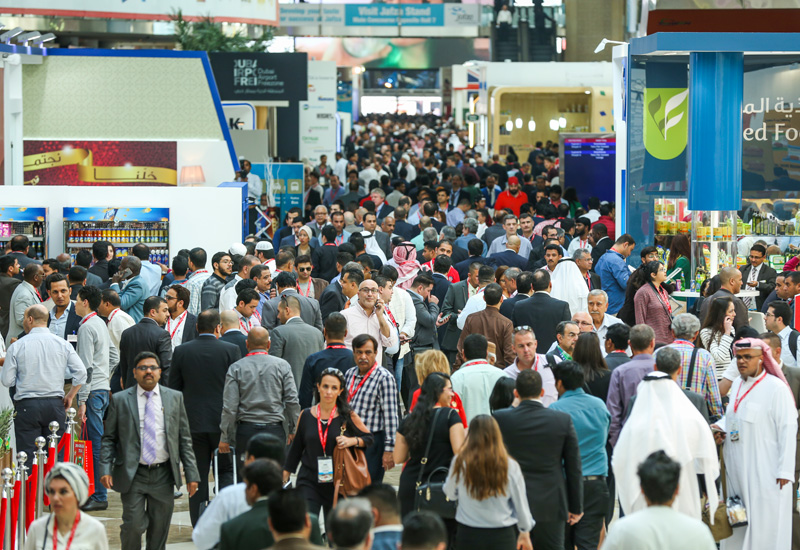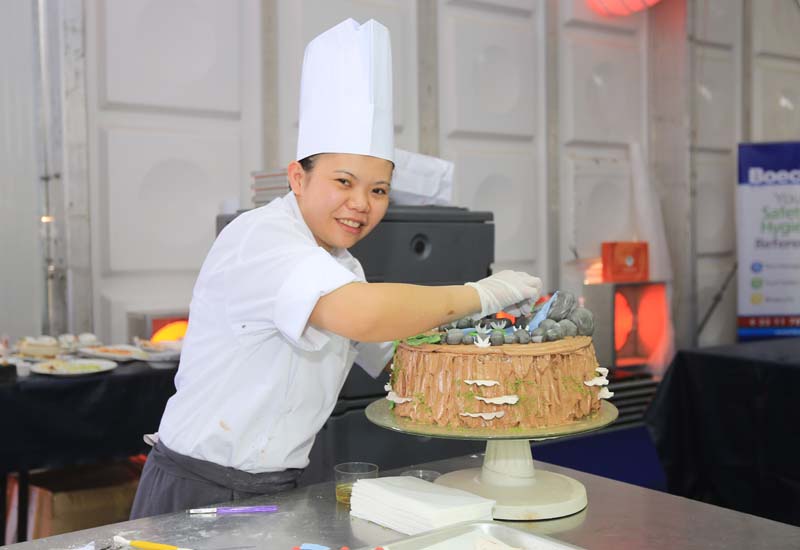The 21st edition of Gulfood took place in Dubai from February 21-25, and saw a number of trends, new products, and launches at the Dubai World Trade Centre. As always, the show was privy to investment plans and futures being planned for the region’s foodservice industry. Here is our detailed report, boiled down into ingredients, equipment, and essential supplies.
INGREDIENT NEWS
Starting off our ingredients section with chocolate, French chocolate firm Valrhona has re-affirmed its relationship with its farms with the launch of new products after years of R&D. Valrhona area manager IMEA Zeyneb Larabi revealed that Gulfood 2016 marked the official launch of these new items. She said: “We have two new unique products: one is Mananka, it’s a single origin from Madagascar with orange. And then we have Itakuja, a pure origin from Brazil with passionfruit.”
Larabi explained: “What is very unique is that after more than 10 years of R&D with our planters, we developed a process where at the stage of fermentation we add fruits so it gets infused and gives a very natural subtlety to the chocolate.”
In addition to the new fruit-infused chocolate, Valrhona has also added a few more items to its organic and fairtrade range — these include Andoa (70% and 39%), Acaoba (60%), and Waina (35%). “In terms of R&D and relationship, we are very close to our planters,” said Larabi. “Our approach to sourcing is very unique as well; we have two people travelling across the world to find the finest cocoa beans. Innovation is very important for us, and planters and CSR as well.” With poultry, innovation can be seen in the local market as well. A new farm in Abu Dhabi being built by Emirates Modern Poultry (Al Rawdah) to produce fresh chicken and frozen chicken products will more than double the company’s current output. Paul Farhat, head of foodservice, said that while the company’s farm in Dubai occupies around 5,000km2, the development in Abu Dhabi will be even bigger, partly due to the Emirate’s regulations that stipulate the slaughter house not be located inside the farm.
“It is going to double our capacity and we are looking at a late 2016/ early 2017 finish. Today we slaughter 45,000 chickens every day. When this farm is finished we are looking at up to 100,000 a day,” Farhat shared. He added: “The farm is by Liwa, near the Saudi border, and like our farm in Dubai, we want it to be a zero-waste concept.”
The addition of a farm has been driven by consumer demand with Farhat remarking that the company is “currently running at full capacity”, attributing the rising demand for its produce to a growing awareness “about how chickens are raised, what they eat and how they are slaughtered”. Al Rawdah chickens live cage-free, are fed a home-made 100% natural diet and are slaughtered by hand as per halal regulations.
In the beverage product market, Nordaq Fresh, a water filtration system from Sweden, distributed by La Marquise, is currently experiencing growth in the Middle East, according to La Marquise marketing manager Olga Mirtova.
She said: “Demand for Nordaq Fresh in this region is strong; the products are already popular in Europe, but they’re new to the Middle East, we are the innovators here, and we’re seeing very good response from the market. Nordaq Fresh filters tap water, removing all the impurities, while keeping all the minerals, producing Michelin star quality water for use in hotels and restaurants.
Midrange and luxury hotels can benefit from this product; we just need to calculate the water consumption levels to ensure there is good return on investment — if they use a lot of water — then the star rating becomes irrelevant – all hotels can profit from Nordaq Fresh.”
Article continues on next page...

| Advertisement |










 Search our database of more than 2,700 industry companies
Search our database of more than 2,700 industry companies









